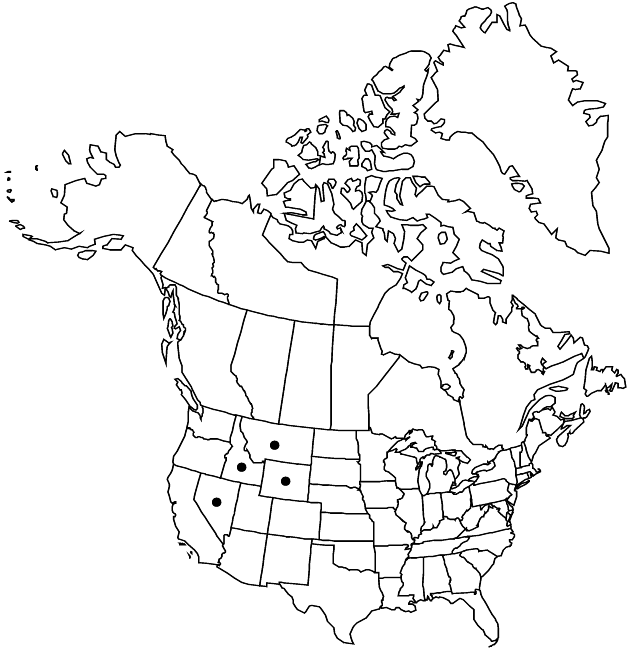Difference between revisions of "Packera dimorphophylla var. paysonii"
Sida 18: 386. 1998.
Common names: Payson’s groundsel
Basionym: Senecio dimorphophyllus var. paysonii T. M. Barkley Trans. Kansas Acad. Sci. 65: 362. 1963
FNA>Volume Importer |
FNA>Volume Importer |
||
| Line 11: | Line 11: | ||
|name=Senecio dimorphophyllus var. paysonii | |name=Senecio dimorphophyllus var. paysonii | ||
|authority=T. M. Barkley | |authority=T. M. Barkley | ||
| + | |rank=variety | ||
|publication_title=Trans. Kansas Acad. Sci. | |publication_title=Trans. Kansas Acad. Sci. | ||
|publication_place=65: 362. 1963 | |publication_place=65: 362. 1963 | ||
| Line 38: | Line 39: | ||
-->{{#Taxon: | -->{{#Taxon: | ||
name=Packera dimorphophylla var. paysonii | name=Packera dimorphophylla var. paysonii | ||
| − | |||
|authority=(T. M. Barkley) Trock & T. M. Barkley | |authority=(T. M. Barkley) Trock & T. M. Barkley | ||
|rank=variety | |rank=variety | ||
| Line 53: | Line 53: | ||
|publication year=1998 | |publication year=1998 | ||
|special status= | |special status= | ||
| − | |source xml=https://jpend@bitbucket.org/aafc-mbb/fna-data-curation.git/src/ | + | |source xml=https://jpend@bitbucket.org/aafc-mbb/fna-data-curation.git/src/eaa6e58056e40c9ef614d8f47aea294977a1a5e9/coarse_grained_fna_xml/V19-20-21/V20_1303.xml |
|tribe=Asteraceae tribe Senecioneae | |tribe=Asteraceae tribe Senecioneae | ||
|genus=Packera | |genus=Packera | ||
Revision as of 19:25, 16 December 2019
Plants 10–35 cm. Stems 1 (lax), frequently 1–3 times branched. Basal leaves: petioles narrowly, if at all, winged, lengths 1–2 times blades; blades orbiculate to subreniform, 1–5+ × 1–4 cm, bases subcordate or abruptly contracted. Cauline leaves clasping; auriculate.
Phenology: Flowering early Jul–late Aug.
Habitat: Steep, rocky slopes, thin soils in alpine meadows
Elevation: 2700–3300 m
Distribution

Idaho, Mont., Nev., Wyo.
Discussion
Variety paysonii is known only from northwestern Wyoming, adjacent Montana and Idaho, and Elko County, Nevada. Its petioles are slender and their lengths are 1–2 times their blades.
Selected References
None.
Lower Taxa
None.